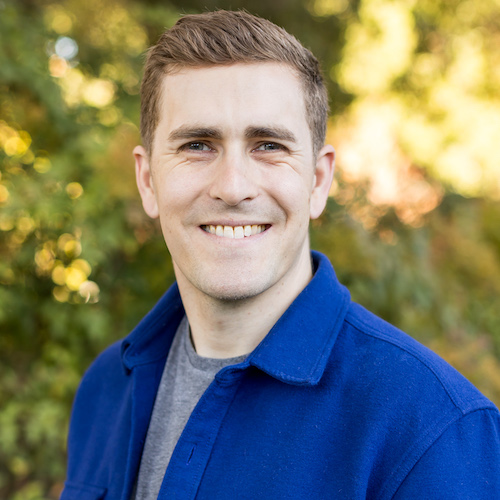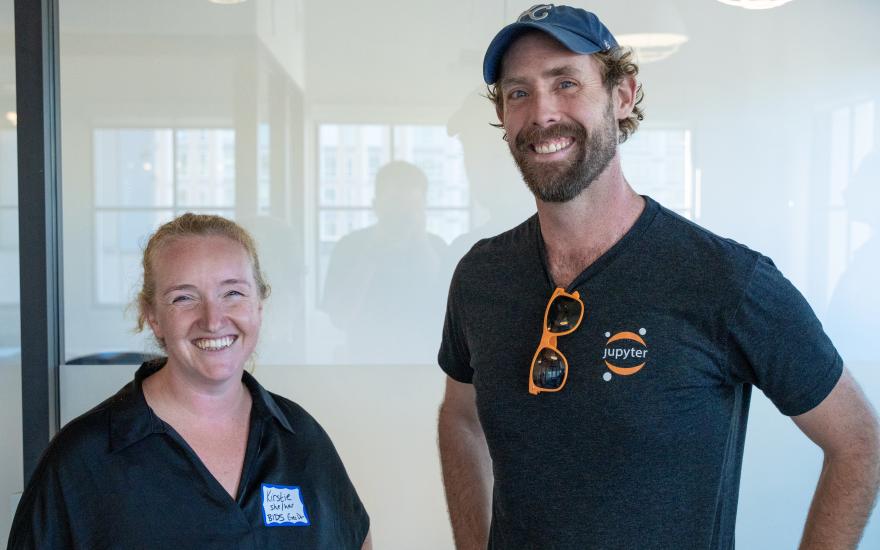Kyle Gerstenschlager, M.A. ‘20, always enjoyed STEM and the humanities. So it wasn’t a surprise that after graduating with a math major and art history minor, he explored both areas. He managed accounts at a hedge fund, then served as a spokesperson for Meta.
But after a few years in the communications space, Gerstenschlager was “missing that analytical itch.” He attended UC Berkeley’s statistics professional master’s program because of its 10-month duration, collaborative nature and excellent reputation.
“Berkeley invested in me by both accepting me to the program and then also by awarding me a scholarship,” said Gerstenschlager, who now works at Meta as a technical program manager for the Communications Measurement Team. “I had a wonderful time building strong relationships with the professors and with my peers.”
Gerstenschlager is an example of one of the roughly 60 students each year who join Berkeley’s statistics M.A. program. The program seeks to prepare students to address real-world statistical and data science challenges that arise across industries. It’s housed in the Department of Statistics graduate school, which U.S. News & World Report ranks No. 2 in the nation. Program alumni work for entities from Amazon to the U.S. Bureau of Labor Statistics and ESPN.
Gerstenschlager vetted data science and statistics master’s programs before he settled on this one at Berkeley. He wanted an in-person program, he said, and was more interested in digging deeply into mathematics than splitting his time with coding work.
"My former math professors and folks in industry both told me that programming would be easier to learn independently if necessary, and to prioritize a program with an emphasis on theory since it's harder to learn," Gerstenschlager said. “So that was really important to me, and Berkeley has that in spades with an incredibly well-regarded statistics program and faculty.”
When he started at Berkeley in the fall of 2019, Gerstenschlager treated school like a job. He would go to campus at 8 a.m. and stay until 6 p.m., attending classes, grabbing lunch and studying in a student lounge with his peers. They’d attend professors’ office hours, collaborate on homework, then go to trivia night or grab a drink.
Then the coronavirus pandemic hit, and everything went virtual. Gerstenschlager said the relationships and habits he’d built in the first half sustained him. He added that getting access to leaders in the statistical field is “a privilege.”
“You don't get to be taught by these people every day. You don't get to go to their office and talk to them or hear about their research,” he said. “It's really just a pleasure.”
The Bay Area native has a soft spot for Berkeley for another reason: his mom. Donna Petkanics, J.D. '85, earned her law degree at the university, and he watched her stay involved long after. She taught a "Venture Capital and Initial Public Offerings” class and served for years as a UC Berkeley Foundation trustee. Her engagement was “inspiring,” he said.
“She showed me the power of a Berkeley degree,” said Gerstenschlager, the 2020 alum. “That launched her career. She also remained active as a member of the community and continued to give back through service.”
Today, he’s following in her footsteps. He’s on the Department of Statistics’ Alumni Advisory Board, where he and his peers across industries offer input and insights to support classes, students and the broader community. For example, they share what programming languages employers often use, which can impact how a class is taught.
Gerstenschlager’s board experience has helped him deepen his connection to the department by staying in touch with his cohort and professors and meeting alumni from other years. Folks off the board can stay connected, too, he said. For example, reach out to Berkeley alums on LinkedIn or via email. Many will respond, he said.
He had other advice for Berkeley students or alumni on the job hunt: Read job descriptions, not just their title, before you apply. A data science role can mean many different things in practice. Do projects that apply your skills to the real world and – when you apply to a job – know those projects inside and out. And when you pick a project, follow your passion, he said. That way you’ll be energized to put in the time to succeed.
“It’s amazing. My path keeps crossing with Berkeley folks,” Gerstenschlager said. “I've been really happy that Berkeley continues to be part of my life."



